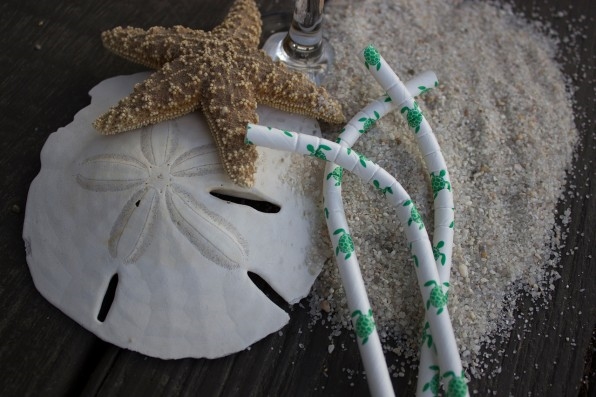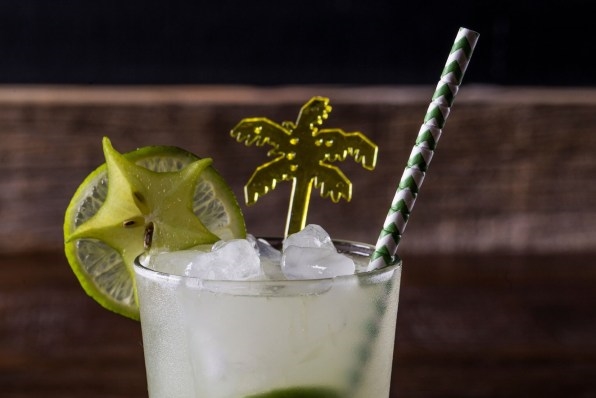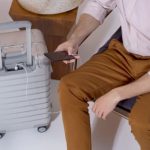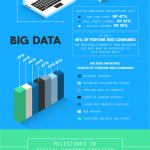Can We All Agree That Plastic Straws Are Totally Unnecessary?
We suck. Some of us suck more than others, but really, we all do, or have at sometime.
We suck because collectively, we toss 28 billion pounds of plastic into the oceans each year. We suck because those bits of floating trash, like six-pack rings and soda bottles, are strangling fish and sea creatures and killing coral reefs from the inside out. We suck because we know all this and continue to buy up and discard plastic anyways. And we suck because there’s one type of single-use plastic in particular that is, when you think about it, totally unnecessary, yet we continue to use: straws.
For the month of September, the Lonely Whale Foundation, a clean-ocean advocacy nonprofit set up by actor Adrian Grenier and entertainment entrepreneur Lucy Sumner in 2015, will be running a campaign in Seattle to point out just how ridiculous our reliance on straws is. Across the U.S., we use and toss around 500 million plastic straws each day, which totals out to around 12 million pounds of plastic waste over a year.

[Photo: courtesy Aardvark]
Plastic straws are made from the petroleum by-product propylene, which is, in larger iterations, recyclable, but because straws are so tiny, they, along with other small items like bottle caps, slip through the cracks in the recycling conveyor belt and end up in landfill, and from there, the ocean. Once in the ocean, that same small size renders them especially pernicious to wildlife–recall the video of a sea turtle with a straw embedded in its face that went viral in the summer of 2015.
What the “Strawless September” campaign (part of the Lonely Whale’s larger Strawless Ocean initiative) and its digital leadup, the #StopSucking challenge, want to prove is that it’s possible for life in a city to go on without plastic straws. The Lonely Whale has coordinated an expansive effort across the city to get restaurants, facilities, and events to trade out plastic straws for paper alternatives, and for customers to say “no, thanks.” And leading up to September 1, the nonprofit is coordinating the #StopSucking challenge to get people across the country to think more actively about their plastic-use habits.
“There’s at least 20, if not more, plastic straw campaigns out there already,” Dune Ives, the Lonely Whale’s executive director, tells Fast Company. One, “Be Straw Free” was launched by Milo Cress, then nine years old, who went door to door in his hometown of Burlington, Vermont asking businesses to stop offering straws after he realized that the one he received at a restaurant was unnecessary to his drinking the soda he ordered. “We wanted to find a way into the conversation and add to what all these ocean-health organizations have been doing for years,” Ives says. And what they landed on as a solution was humor.
The #StopSucking campaign is a bit tongue-in-cheek, but the playful approach seems to be catching on, Ives says. After a successful launch at South By Southwest this year, where a PSA showing straw users being sucker-punched by an octopus tentacle, the Lonely Whale is hoping the challenge to go straw-free catches on in the same way the Ice Bucket Challenge raised millions of dollars to fight ALS since it took off in the summer of 2014.
It’s one thing to personally decide against using straws, but it’s another thing altogether for a whole business or city to decide to go plastic-straw free. “Across the board, the first question everyone asked us was: Will customers like it?” Ives says. Paper straws, despite being more sustainable, are relatively uncommon, and have a reputation for not being all that sturdy. But Ives says that they’ve encouraged businesses to have fun with it–to customize the straws with unique designs and logos, and to engage customers in a conversation about why the switch is necessary. Moving away from plastic also presents an opportunity for businesses to explore other alternatives: Seattle-based restaurateur Renee Erickson, for example, has switched to metal straws in all of her ventures.

[Photo: courtesy Aardvark]
Seattle made sense as a launch city because as Fred Felleman, Port of Seattle Commissioner, tells Fast Company, it fits in with the city’s overall ambition to be a leader in the environmental sustainability space. The Port, which Felleman oversees and which encompasses both the city’s airport and seaport, “has a basic mission to be the cleanest, greenest, most energy-efficient port in the nation,” he says. Phasing out straws was a natural step, and one that he anticipates will continue beyond the end of the “Strawless September” campaign–a sentiment echoed also by Rebecca Hale, director of public information for Safeco Field, who is overseeing the strawless effort at all Seattle Mariners home games for the month.
Just like Ives hopes that the Strawless September efforts in Seattle will get more local business on board, so too does she hope that the plastic-straw effort follows the path of the plastic bag ban, and becomes a movement that spreads out from individual cities and counties before reaching the state level. Ives says that the Lonely Whale has heard from its partner nonprofits that the Strawless Ocean efforts have given lift to local-level policy conversations; lawmakers in Berkeley, California–one of the pioneers in the plastic-bag movement–is now pushing for a similar move away from straws.
Fast Company , Read Full Story
(63)













